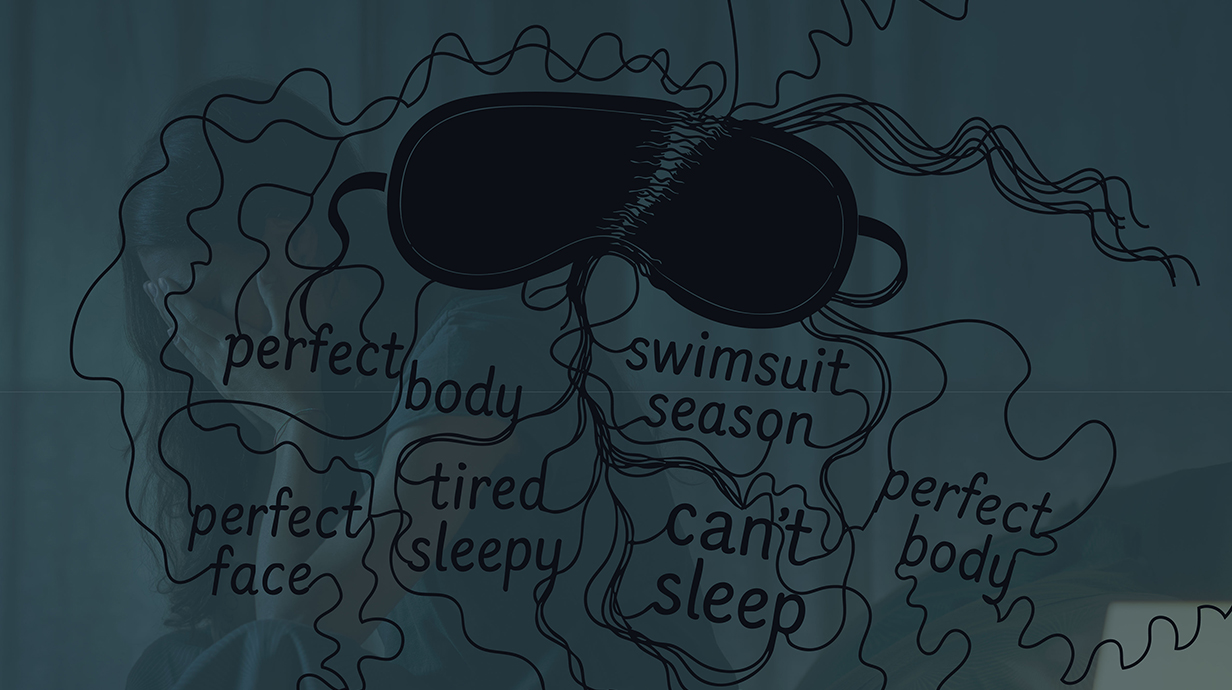Lack of Sleep Linked to Negative Body Image in Teens
UM researchers find associations between poor sleep quality and body dysmorphia

OXFORD, Miss. – Poor sleep quality is often tied to mental health conditions such as anxiety and depression, but new research from the University of Mississippi suggests it may also be related to how teens feel about their appearance.
A new study published in Child Psychiatry and Human Development found an association between sleep quality and symptoms of body dysmorphic disorder, a condition that involves obsession over perceived defects in one's appearance.

"We found that adolescents who report lower quality sleep also tend to report higher levels of body dysmorphia symptoms," said Sarah Bilsky, assistant professor of psychology and author of the research.
"Sleep difficulties are really strongly associated with anxiety symptoms and depressive symptoms. Those are strong, well-established relationships. But the literature about associations between sleep and body dysmorphia is small and the results have been mixed."
Body dysmorphic disorder affects an estimated 5 million to 10 million people in the United States, and symptoms most commonly arise during adolescence. The teenage and preteen years are also when many people experience sleep disruptions, the researchers said.
"Adolescence is a key time in development in which sleep difficulties are common," said Kayce Hopper, a fourth-year clinical psychology doctoral student from Summerville, South Carolina. Hopper is a co-author of the study.
"Sleep during adolescence is not only affected by dramatic biological changes but can also be impacted by increased social pressure. It is important to examine the relationship between sleep and symptoms of body dysmorphic disorder within this vulnerable population."

Puberty hormones such as testosterone and estrogen shift a teenager's internal clock forward, making them more likely to go to sleep later than usual. But school start times do not accommodate that change in schedule, meaning they still must wake up early.
That is one reason more than 70% of teenagers report not getting the recommended eight hours of sleep per day.
"This is also the time when kids start focusing on peer relationships and how people are perceiving them," said Leila Sachner, a third-year clinical psychology doctoral student from Hamden, Connecticut. Sachner is also a study co-author. "And they're comparing what they look like to what social media says they should look like.
"We know it's harder to deal with stress and regulate your emotions when you're feeling fatigued."
This combination – social pressure, sleep deprivation and a changing body – makes a perfect storm for someone who is experiencing body dysmorphia, the researchers said.
In two studies that included more than 700 adolescents, the researchers found that participants who reported lower quality sleep were likely to report higher levels of body dysmorphia symptoms.

Although the study found a clear association between the two, Bilsky said much work remains before researchers fully understand that relationship.
"We can't say what's driving the other," she said. "It could be that body dysmorphia is interfering with sleep, or it could be that lack of sleep is making them more vulnerable to body dysmorphia symptoms. It could be both.
"This is just the first step, but it suggests the direction we could take in the future to do more intensive work and figure that out."
In the meantime, teenagers and those who care for them should prioritize good sleep habits for many reasons, the researchers said.
"We know that there are a number of biological or physical vulnerabilities that make us more susceptible to negative emotions, and sleep is one of those," Sachner said. "What that means is if we're not physically taking care of our bodies – sleeping, eating well, exercising – that can increase our vulnerability to feeling negative emotions.
"These are important factors for us to feel more emotionally stable and not as susceptible to those feelings."
Top: Teens who suffer from poor sleep tent to report higher rates of body dysmorphic disorder, a condition that involves obsession over perceived defects in one's appearance. Ole Miss psychology researchers are working to understand the link in hopes of finding ways to help adolescents who are affected. Graphic by Jordan Thweatt/University Marketing and Communications
By
Clara Turnage
Campus
Office, Department or Center
Published
May 21, 2025
